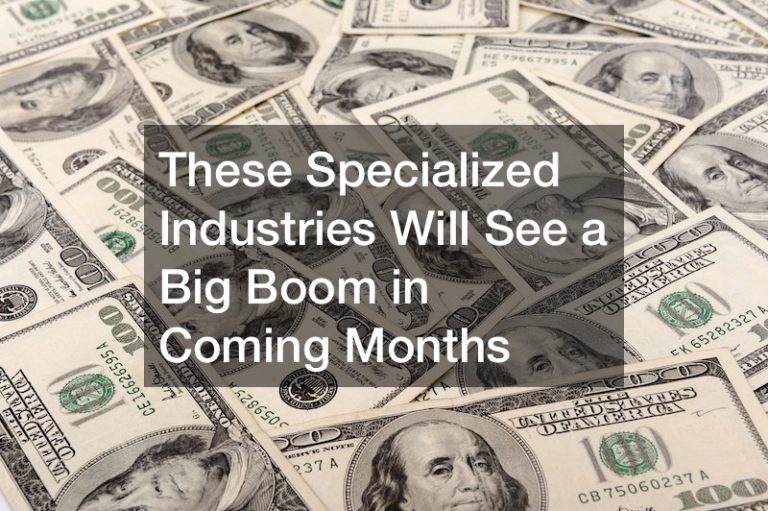4 Industries Millennials Are Accused Of Killing (When They Actually Haven’t)


If you listened to a significant portion of the media, millennials would be responsible for killing the economy. Seemingly every day, there is a new story about how millennials are killing this industry and that industry. It’s true that the United States is currently in the midst of an economic decline, but that’s not necessarily linked to millennials. For one thing, millennials may be making up a large share of the upcoming work force, but they’re not the leaders of industry now. Indeed, most of the lawmakers making decisions that direct the future of the American economy are not millennials. There are also unforeseen circumstances that can greatly affect our economic prospects. One of the most significant, certainly, is the COVID-19 pandemic. The pandemic forced millions of Americans to stay at home. While some were able to continue working from home, others were forced to take a temporary leave from work, while more still were required to leave their positions entirely. This has impacted the economy on a major scale; but at the same time, it must be understood that there were already problems present, and many were blamed on millennials.
The perception is that millennials are refusing to engage with the economy fully, deciding against buying or investing in certain products that were once considered to be constants. In turn, these industries supposedly have struggled, especially as the buying power of the previous generations naturally wanes with advancing age. But there is much more than what may initially meet the eye in regards to this issue. In many cases, it’s not that millennials have decided against buying into longstanding industries arbitrarily. Rather, it’s that they may not be able to readily afford certain products or services the way that their parents and grandparents may have; or perhaps that competitors have offered similar products or services for a better price, or with greater benefits. Much of this, of course, can be chalked up to changing consumer behaviors that are a part of a naturally transforming economy. With that being said, let’s look into these industries that millennials have supposedly killed, and why that might not be the case.
1. The Diamond Industry

In past years, the diamond industry may have seemed strong and reliable for a number of reasons. Diamonds have long been the most coveted of jewels, and as the hardest stones were considered of a higher quality than others. They are associated with luxury, wealth, and success, making consumers want them even more. For that matter, diamond rings are considered by many the standard for engagement rings. Lots of people can’t imagine proposing without a diamond ring. But changing consumer behaviors, among other factors, have brought a shift to this longstanding industry, taking some of the power away from this jewel. Though diamonds were still strong financially at the beginning of the 2010s, millennials have remained skeptical about their actual value, and in fact, harbor ethical concerns about the diamond industry. The world has become more aware of issues surrounding “blood diamonds”, which have been sourced from inhuman diamond mines that exploit vulnerable workers. Furthermore, many millennials, already dealing with significant debt due to student loans among other things, simply don’t see the value in the high price tag attached to diamonds. Where expensive engagement rings were once the norm, now it is much more acceptable for shoppers to seek affordable diamonds.
Now, it’s not that millennials have been put off of buying diamonds entirely. Rather, many are open to buying stones that stand as alternatives to traditionally mined diamonds. Diamond buyers can still get the stone if they really want it by investing in lab-grown diamonds. According to a survey, about 70% of millennials would consider buying a lab-grown diamond. Lab-grown diamonds are ethically sourced, and chemically identical to naturally mined diamonds. However, some of them are still rather expensive, even if they can cost about a third less than mined diamonds and many millennials are being drawn to alternative stones, not only due to their lower costs but their unique appearances. Sapphires, which can actually come in a clear form similar to diamonds as well as many colors other than their traditional blue, have become popular amongst millennial jewelry buyers, as have stones like moissanite and morganite. Not only can these gems be ethically sourced, but they don’t pack quite the same financial punch. Therefore, it’s no wonder that millennials prefer them. It’s not that millennials have decided to simply go against the grain and not buy diamonds. Rather, it’s that this industry has experienced changing consumer behavior. Consumers expect more from their diamonds and gemstones, and won’t settle for paying a premium for products that they don’t quite believe in anymore.
2. Motorcycles
Motorcycling, as a hobby, has always had something of a reputation among the general population. People that ride motorcycles are seen as edgy and cool, and for that matter were once considered a part of the “rebel without a cause” crowd. Back when motorcycles first rose in popularity, they were associated with counterculture, and it took a while for them to become associated with luxury the way that they are now. The motorcycle industry is yet another that millennials are blamed for “killing”, which truly isn’t fair. If anything, many millennials are becoming more interested in traveling by motorcycle as they attempt to downsize. Millennials like the idea of moving away from big automobiles like cars, and motorcycles are both relatively easy to use and compact. But there are several issues that keep millennials from fully investing in the motorcycle movement, changing consumer behavior aside. For one thing, while motorcycles were once associated with youth and rebellion, those that really jumped on board with this philosophy are now aging out of it, and millennials are often focused on how expensive motorcycles are. While boomers may have had the budget to buy motorcycles to make a point, millennials simply don’t, typically.
The fact that nobody needs motorcycles and they’re extremely expensive relative to their practicality. While they’re incredibly fun and they can get two people from one place to the other, once a person starts having a family or even if they need to carpool, the issue becomes a lot trickier. Of course, there are also expenses on top of the motorcycle itself that people need to consider, like motorcycle insurance, and even potentially insurance premiums going up because they’re motorcycle enthusiasts. Motorcycles also have a reputation for being less safe than cars, warranted or not. While motorcycle riders can use safe practices and wear helmets, there is always a risk inherent to driving a vehicle that is much smaller than those around you and being unable to control the actions of the drivers around you. A combination of the cost of motorcycles, their impracticality, and of course the lack of safety associated with them seems to have contributed towards the changing consumer behavior surrounding this industry, rather than millennials simply turning their nose up at them. If motorcycles were more affordable, it’s quite possible that millennials would be more interested in these compact vehicles, especially if they were made to be more environmentally friendly and fuel efficient. The facts can greatly contribute to how much millennials may or may not invest in a product in the coming years, as many seek to be both more financially conscious, and environmentally conscious as well.
3. The Starter Home Market
One major in which millennials have demonstrated changing consumer behaviors is in the manner through which they’ve approached the housing market, and whether or not they should own homes in the first place. In the past, it was commonplace for young adults making their way in their world, not long out of college or perhaps early into a marriage. But then again, it was easier for previous generations to afford to buy a house at a younger age. Not only did they typically make more money faster; they also had less debt impacting their viability as potential buyers. Therefore, they were able to buy what was known as “starter homes”, which everyone knew they would likely sell later on when they upgraded to larger, more long-term houses.
A major reason why millennials don’t buy houses, however, in addition to the fact that they’re often too expensive or difficult to procure the funds for, is that they’re putting off a lot of life stages for later in this day and age. Many millennials prefer to put getting married and have children off for a later point in life. This means that they don’t need a larger home at first, and can make do with a rental home or even an apartment until they’re ready to buy. The issue that critics bring up, however, also lies in the fact that when people put off buying a home they also put off patronizing related industries. For example, while you’re still funneling money into the housing market by renting, you can’t exactly invest in a kitchen studio rental when you rent a property rather than owning it. Nor do you have much at stake in terms of staying in one place. But this is really a normal part of changing consumer behavior again. Typically, Americans have trended towards settling down later with each passing generation, so it makes sense that millennials just aren’t as immediately ready to settle down and commit financially to something that will take them years, potentially decades, to pay off. Americans are also more interested in travel than they once were, which further takes away the incentive to invest in a starter home. It’s not that they aren’t buying houses; they just aren’t buying as many, or as quickly.
4. The Kitchen
Yes, millennials have also been accused of killing the kitchen. The reason that experts point to is that millennials no longer invest in home cooking equipment, as well as groceries and kitchen improvements as much as they once did because they’ve become reliant upon delivery. Millennials rely upon delivery for a number of things in this day and age. In fact, in states where medical and recreational marijuana is legal, marijuana delivery is popular, proving the extent to which delivery has changed the world. Certainly, a lot of millennials would rather depend on delivery rather than cooking for themselves, if they can. With that being said, the issue is once again more complex than it might initially seem and has more to do with naturally changing consumer behavior than a rejection of home cooking and the kitchen in general.
There are a number of issues the have led millennials to begin preferring delivery. For one thing, it can be less expensive to order delivery at times, despite delivery fees and tips associated with the process. People are less likely to spend impulsively when they’re ordering ahead of time, rather than shopping in a grocery store or even visiting a restaurant in person. For that matter, the COVID-19 pandemic has forced people to stay indoors more than they once did, for their own safety. This is definitely a changing consumer behavior, but it’s not something that can really be changed. It remains to be seen if door to door delivery will be remained as popular as it is right now once the pandemic settles. With that being said, if it does then delivery may very well be the way of the future for many industries, and once that they need to adapt to.
There are many industries, clearly, that are experiencing difficulties at the moment. But it’s unfair to blame millennials for these difficulties on their own. Though millennials may be experiencing changing consumer behavior on a broad scale, many of these behaviors are changing due to reasons out of their hands, or for reasons that would ultimately have happened either way. As history progresses, certain products and services will naturally fall out of fashion and need. This doesn’t mean that those mentioned above won’t recover, but we certainly cannot blame millennials solely for “killing” them if they don’t. There is simply a natural progression that we must pay attention to.









